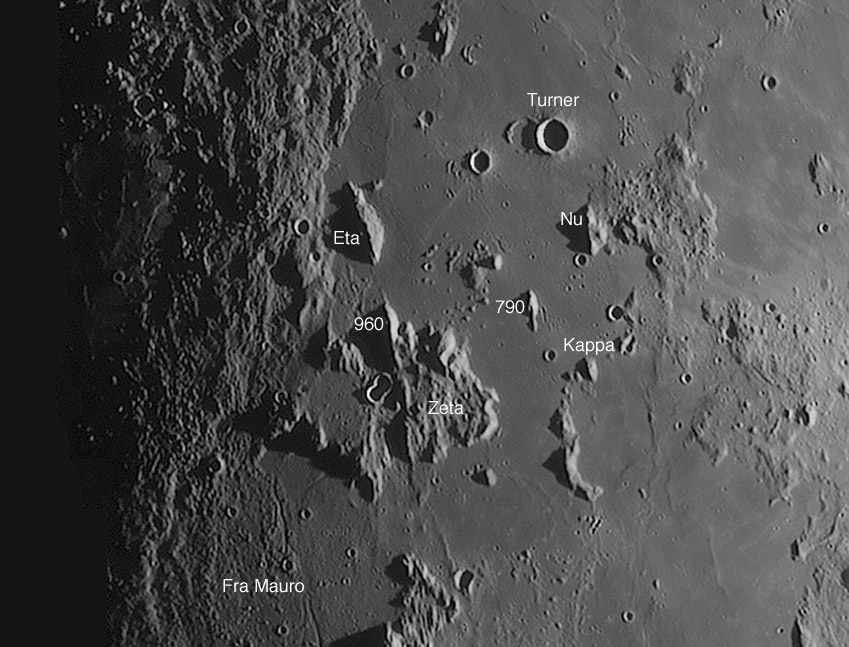
image by Stefan Lammel, Uxbridge, England
Once when I was working as a student cataloger of lunar craters I asked my boss, David Arthur, what some ridges were. I don’t remember which ridges they were, but Dai (the Welsh diminuitive for David) replied: They must be crater rims. Everything on the Moon is a part of some impact structure, big or small. I remembered that exchange when I saw Stefan’s image of this area just northeast of Fra Mauro (bottom left). In particular, when looking at the relatively linear ridges Fra Mauro Eta and the left edge of Fra Mauro Zeta, Turner Nu and hill 790 (named for its height on LAC 76). Of course, the low lighting, with the Sun to the east makes these look more linear than perhaps they really are, but would you say these ridges are remnants of impact craters? The southern piece of the ridge south of Turner Kappa is likely to be a remaining segment of an otherwise gone crater because it is slightly curved. But the other ridges don’t have such curvature and we might think they could only be crater rim segments if the craters had very large diameters. But there aren’t other putative rim segments to confirm that. A clue may be the curved ridge south of Kappa. All of the rest of the rim is missing. Whatever force removed that rim completely erased it. Well, the force would be the massive ground surge of Imbrium ejecta that swept across this landscape 3.84 b.y. ago. Closer to the basin rim there are few remaining pre-Imbrium crater fragments, and at this distance the pieces that survived are the rim segments that were aligned radial to the onrush. We make this interpretation, tacitly accepting Dai’s statement that everything (except the obvious volcanic domes and rilles) was formed by impact cratering. That is amazing if true, as it probably is. The Moon had such a paucity of geologic processes - essentially only volcanism and impacting - that our job of reading the history should be easy. Ha!
Technical Details:
27-Mar-07 22:19-23.22 UT. 10in f4.8 Newtonian, DMK 21AF04, 4x PowerMate, green filter, Registax v4, PSE 5, 1/30s, 1300/4000, MAP: 19-44x 64×64, part of a 3 image mosaic.
Related links:
Rükl 43
Stefan’s website
Yesterday's LPOD: More in and Out
Tomorrow's LPOD: Notes on a Scene
COMMENTS?
Register, Log in, and join in the comments.



